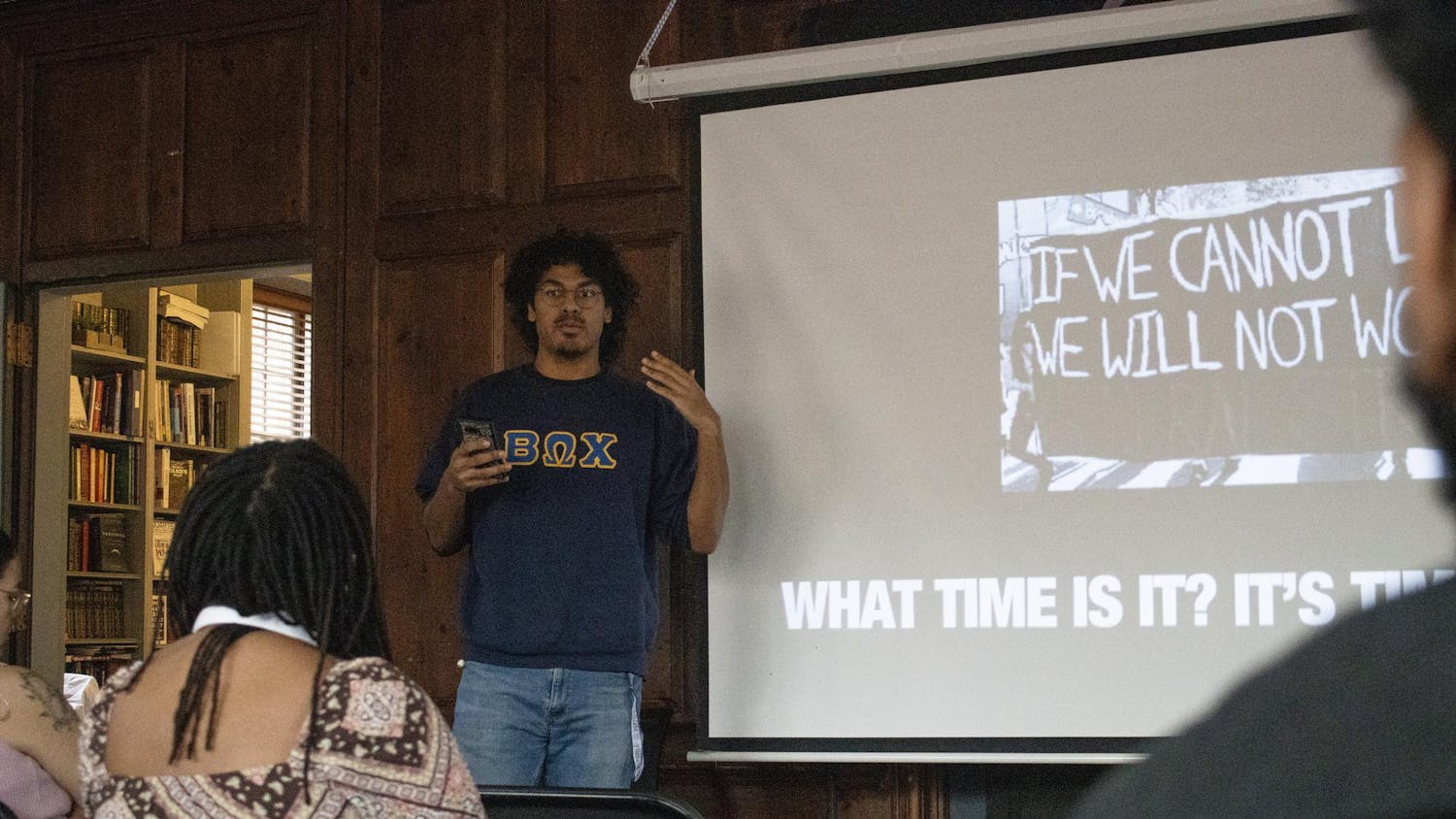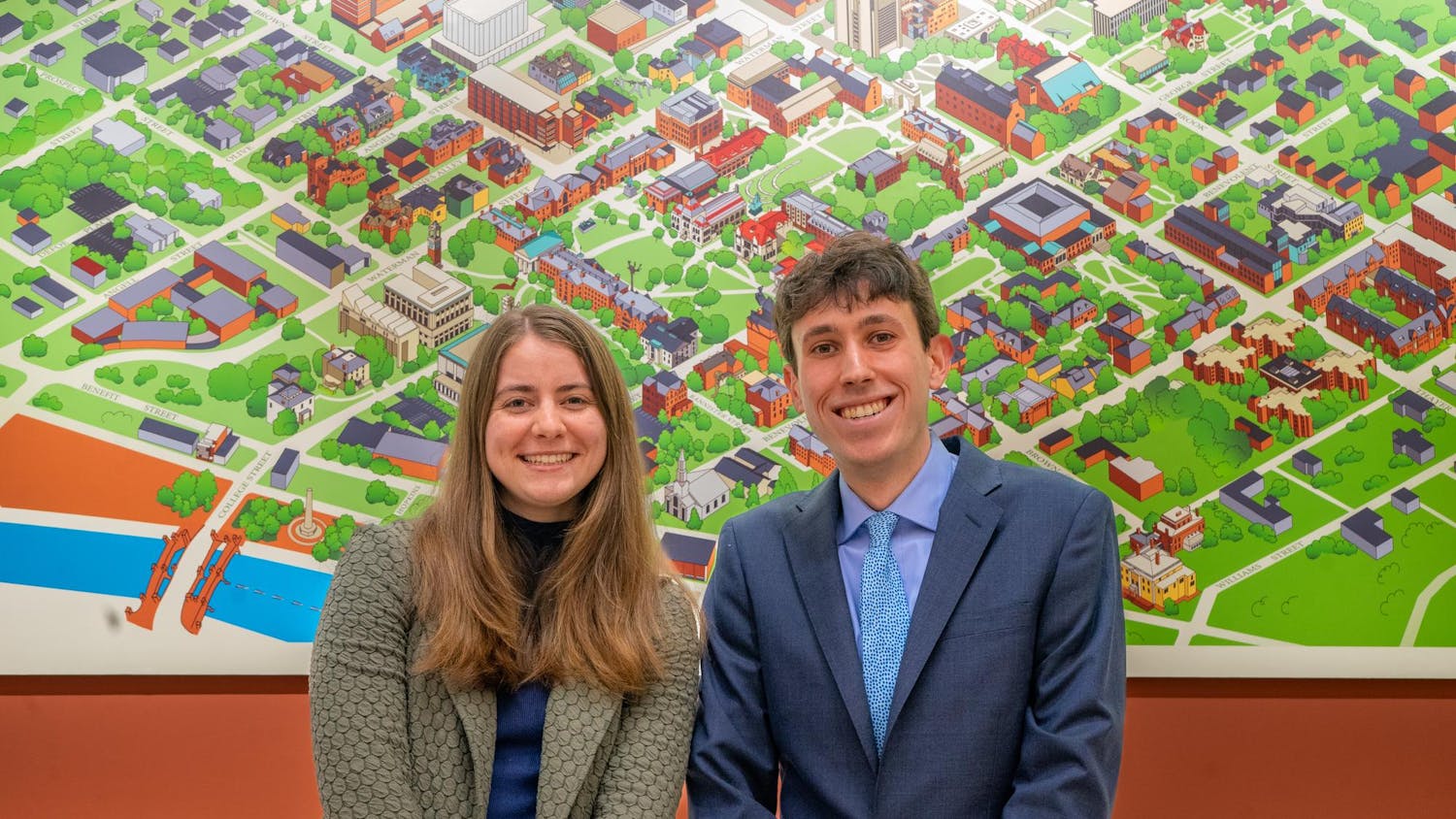The Undergraduate Council of Students did not vote to endorse Decolonization at Brown’s proposal to remove and replace Roman statues on campus in a vote following the Council’s Nov. 4 general body meeting.
DAB’s initiative calls for the removal of the Caesar Augustus statue in front of the Sharpe Refectory and the Marcus Aurelius statue on the Ruth J. Simmons Quadrangle, pieces the group argues perpetuate white supremacy and colonialism on campus, The Herald previously reported.
In a vote that was postponed from the Council’s Oct. 22 meeting, 46.4 percent of general body members who voted decided in favor of endorsing DAB’s initiative. 39.3 percent voted against endorsement, and 14.3 percent abstained. Because the measure did not receive a majority either way, the Council does not officially endorse the initiative.
Also at the meeting, UCS continued discussions about its voting procedures and proposed the creation of a Governance, Ethics and Accountability Board at its general body meeting Nov. 4.
Disagreement about whether the class-year representatives amendment proposed Oct. 7 had received enough votes to pass prompted the Nov. 4 discussion about internal voting. Section VI.4.1 of the Council’s bylaws dictates that the creation of internal or external committees only requires a simple majority of votes to pass, but many UCS members have challenged this provision.
The class-year representatives amendment, proposed by Chief of Staff Sam Caplan ’22, would have created UCS representatives for each class year, modeled off of the Council’s first-year representatives position.
Much of the discussion revolved around changes to UCS’ voting processes in light of the virtual voting format necessitated by the COVID-19 pandemic.
“Right now we're sort of fudging the rules to be able to accommodate people who are (not) able to be with us in person,” UCS President Jason Carroll ’21 said. “We had to be thoughtful about the way we're doing this just because everything is so different in the virtual format.”
Some members of the general body said that they may have voted differently on the class-year representatives amendment had they been informed of the requirements for the measure to pass.
“To have (the vote) reverse suddenly to say that it was a simple majority under (Section VI.) 4.1 was definitely a surprise, as it was something that we weren't necessarily informed of ahead of time,” said general body member Christopher Vanderpool ’24.
Parliamentarian Zanagee Artis ’22 cited wording of Section VI.4.1 that he said was ambiguous. “It’s very unclear what exactly a special internal committee is,” he said.
“Because it's an amendment to the bylaws, consistent with the (UCS) Constitution and our own bylaws, an amendment requires a two-thirds” majority to pass, he added.
While Carroll initially ruled that the amendment only required a simple majority vote and thus had passed, members of the general body appealed the inquiry, initiating a vote on whether or not to overturn Carroll’s ruling. In a Nov. 10 email to the general body, the executive board announced that the appeal had been sustained by a simple majority vote, reversing Carroll’s ruling and causing the class-year representatives amendment to fail.
Chair of Campus Life Zane Ruzicka ’23 also introduced a proposal to create a Governance, Ethics and Accountability Board to handle internal UCS disputes. Eight students would serve on the proposed board.
“Our constitution stipulates that students have certain protected rights, but we don't have a body to protect those rights or to carry out certain judicial procedures,” Ruzicka said. The recent conflict within UCS about the applicability of Section VI.4.1 of the Council’s bylaws to the class representatives amendment vote was an impetus for the proposal, he added.
The proposal is currently in a public commenting period. Once this period closes, both the UCS general body and the Undergraduate Finance Board will vote on the proposed board. This measure must receive a two-thirds majority vote from both bodies to pass.

ADVERTISEMENT




